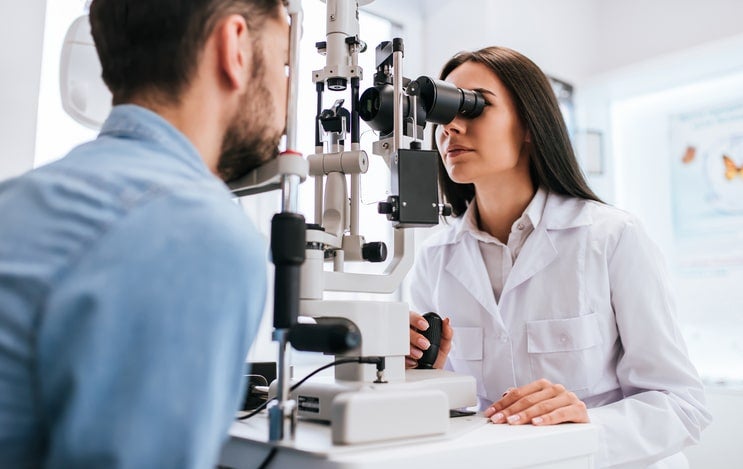Trusted Eye Doctor Montgomery for Vision Care
Trusted Eye Doctor Montgomery for Vision Care
Blog Article
The Value of Routine Eye Examinations: Insights From a Skilled Optometrist
Routine eye tests serve as an essential component of healthcare that expands past plain vision correction. A knowledgeable eye medical professional can offer insights right into exactly how these evaluations not just detect usual eye conditions however additionally disclose underlying health concerns that might or else go undetected.
Benefits of Regular Eye Tests
Although many individuals might neglect the relevance of regular eye exams, these assessments play a crucial function in maintaining total wellness and well-being. Routine eye assessments offer not just to evaluate vision yet also to discover early indications of systemic health and wellness problems, including diabetes and high blood pressure. By recognizing these conditions at their creation, individuals can obtain prompt interventions, significantly boosting long-lasting outcomes.
Furthermore, eye exams can aid in monitoring existing wellness concerns, making certain that any kind of changes in vision or eye health and wellness are immediately attended to (optometrist). The analyses enable for personalized recommendations relating to eyeglasses, way of life adjustments, and protective actions versus prospective eye strain or damages
Beyond physical health and wellness, the advantages of routine eye tests include improving top quality of life. Enhanced vision promotes much better efficiency in everyday activities, from reviewing to driving, thereby adding to better independence and security. Ultimately, focusing on eye exams fosters an aggressive technique to health administration, equipping individuals to organize their well-being. Regular examinations are a vital element of a thorough health care approach, making sure that both vision and general health are preserved throughout life.
Common Eye Issues Detected
Normal eye exams contribute in identifying a variety of common eye conditions that can considerably influence vision and overall health. Among one of the most widespread conditions identified during these examinations are refractive errors, including nearsightedness (nearsightedness), hyperopia (farsightedness), and astigmatism. These problems frequently show up as obscured vision and can be quickly remedied with prescription glasses or call lenses.
An additional common problem is glaucoma, a group of eye conditions that damage the optic nerve, often linked to enhanced intraocular pressure. Early discovery is critical as it can avoid permanent vision loss.
Age-related macular deterioration (AMD) is an additional substantial condition that influences main vision, specifically in individuals over 50. Ultimately, diabetic retinopathy, a difficulty of diabetic issues, can lead to serious vision problems otherwise kept an eye on frequently. With extensive eye exams, these conditions can be recognized early, permitting prompt management and treatment to protect vision and enhance high quality of life.
Relevance of Early Discovery
Early discovery of eye problems plays an important duty in maintaining vision and stopping considerable health and wellness complications. Numerous eye illness, such as glaucoma, diabetic retinopathy, and age-related macular degeneration, can proceed calmly without visible signs in their early stages. By the time signs and symptoms show up, irreparable damages may have happened, causing long-term vision loss.
Normal eye exams facilitate very early diagnosis, permitting prompt treatment and therapy. As an example, treating elevated intraocular stress can prevent the beginning of glaucoma, while taking care of blood glucose levels can substantially reduce the danger of diabetic retinopathy. Furthermore, conditions like cataracts can be successfully managed with surgical treatment when recognized early.

Just How Typically Should You Check Out?
Determining the frequency of eye tests is vital for preserving optimal eye wellness and vision. try here The general recommendation for grownups is to have a thorough eye exam every one to two years, depending upon private threat elements and age. For people matured 18 to 60, an exam every two years is typically enough if no vision problems are existing. However, those over 60 need to consider annual exams, as the risk of age-related problems raises dramatically.
People with particular risk factors, such as a family history of eye condition, diabetes, or existing vision issues, might call for even more frequent examinations. Children need to have their initial eye examination at six months of age, followed by additional tests at age three and prior to entering institution. Normal exams throughout childhood years are vital as vision can change rapidly during developmental years.
Inevitably, the frequency of brows through must be tailored to each person's situations, including way of living, occupational dangers, and any type of pre-existing eye problems. Consulting with an eye care expert can provide customized recommendations, making sure that your eye wellness is routinely kept an eye on and kept.
Tips for Your Eye Examination
Planning for your eye exam can boost the performance of the check out and guarantee a detailed assessment of your eye wellness. To optimize your time with the eye physician, it is essential to collect pertinent information prior to your appointment. Begin by putting together a list of any kind of medications you are presently taking, consisting of over the counter medications and supplements, as these can affect eye health.
Additionally, article document any type of signs and symptoms you have actually experienced, such as obscured vision, discomfort, or frustrations. This information will aid your eye physician in detecting possible problems.
It is additionally helpful to have a family members history of eye conditions handy, as genetic elements can add to your eye wellness. Ultimately, take into consideration scheduling your test for a time when you are less hurried, permitting you to ask concerns and discuss your problems completely. By preparing adequately, you ensure that your eye examination is productive which your optometrist has all the needed info to give the most effective treatment feasible.

Verdict
Normal eye examinations play an important duty in preserving both vision and general health. Eventually, prioritizing extensive eye analyses contributes considerably to the conservation of vision and the enhancement of high quality of life, highlighting the need of routine eye care in precautionary health care strategies.
Routine eye examinations are important in detecting a range of typical eye conditions that can considerably affect vision and general health and wellness.Determining the regularity of eye tests is important for preserving optimal eye health and wellness and vision.Preparing for your eye test can boost the effectiveness of the visit and guarantee a detailed analysis of your eye health (optometrist). By preparing appropriately, you guarantee that your eye examination is productive and that your eye physician has all the required information to offer the ideal care possible
Inevitably, prioritizing thorough eye assessments contributes considerably to the he said conservation of vision and the renovation of quality of life, underlining the necessity of regular eye care in preventive health care strategies.
Report this page